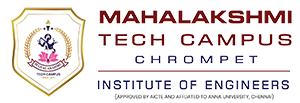
Introduction: The Rise of AI in the Workforce
The rapid advancement of artificial intelligence, particularly generative AI, has sparked global debates: Will AI take my job? From chatbots drafting emails to algorithms designing graphics, AI is reshaping industries. While fears about the impact of AI on jobs dominate headlines, the reality is nuanced. Automation isn’t new – history shows technology often displaces roles but creates new opportunities.
Generative AI tools like ChatGPT , MidJourney and Deepseek are pushing boundaries, raising questions about which jobs are at risk due to AI and how humans can adapt. This blog unpacks the truth behind AI’s role in the workforce, separating hype from reality and offering actionable insights for navigating this transformative era.
Understanding Generative AI and Its Capabilities
Generative AI refers to systems that create text, images, code, or music by learning patterns from vast datasets. Unlike traditional AI, which follows predefined rules, generative AI tools like GPT-4 and DALL-E produce original content. For instance, ChatGPT can draft reports, while Stable Diffusion generates marketing visuals in seconds.
This technology excels at repetitive, data-driven tasks. It’s transforming industries like marketing (personalized ads), healthcare (drug discovery), and software development (automated coding). However,generative AI lacks human traits like empathy and contextual judgment. It can mimic creativity but doesn’t “understand” the content it produces.
The impact of AI on jobs here is twofold: it automates routine work (e.g., data entry) but also augments human skills. For example, designers use AI tools to brainstorm ideas faster, while writers leverage chatbots for research. The key is adaptability-understanding how to harness AI as a collaborator, not a competitor.
Jobs at Risk: Industries Most Affected by AI
While no industry is immune, certain sectors face higher disruption from generative AI and automation:
- Customer Service: Chatbots handle ~70% of routine inquiries, reducing demand for entry-level roles.
- Manufacturing: AI-driven robots perform precision tasks, displacing assembly-line workers.
- Content Creation: Tools like Jasper and Copy.ai draft blogs, press releases, and social posts, impacting freelance writers.
- Legal & Accounting: AI reviews contracts and tax filings faster than humans, threatening paralegals and bookkeepers.
- Retail: Self-checkout systems and inventory robots shrink cashier and stockist roles.
According to McKinsey, by 2030, automation could displace14% of jobs globally, with jobs at risk due to AI concentrated in repetitive, low-skill sectors. However, roles requiring emotional intelligence (e.g., therapists) or physical dexterity (e.g., plumbers) remain safer.
The impact of AI on jobs isn’t uniform. For instance, radiologists use AI to analyze scans more accurately, enhancing their work rather than replacing it. The challenge lies in reskilling workers to pivot toward irreplaceable skills.
AI vs Human Skills: What Machines Can’t Replace
Despite AI’s prowess, humans excel in areas machines can’t replicate:
- Creativity: While generative AI produces art or music, it lacks original intent. Human artists infuse work with emotion and cultural context.
- Empathy: Nurses, teachers, and therapists rely on emotional connection-AI can’t comfort a grieving patient.
- Critical Thinking: AI follows data patterns; humans navigate ambiguity, ethics, and “gray areas.”
- Leadership: Motivating teams and fostering innovation requires emotional intelligence, not algorithms.
For example, ChatGPT might draft a speech, but a human refines it with personal anecdotes and audience nuance. Similarly, AI can diagnose diseases but can’t explain outcomes compassionately.
The impact of AI on jobs will hinge on this synergy. Roles blending technical and soft skills-like UX designers or project managers-will thrive. As AI handles mundane tasks, humans can focus on strategy, innovation, and relationship-building.
New Opportunities: Jobs Created by AI Advancements
While jobs at risk due to AI make headlines, new roles are emerging:
- AI Trainers: Teach models to avoid biases or improve accuracy.
- Data Ethicists: Ensure AI systems comply with privacy laws and ethics.
- Prompt Engineers: Craft precise inputs to optimize generative AI outputs.
- AI Maintenance Technicians: Repair and oversee AI infrastructure.
- Human-AI Collaboration Managers: Bridge gaps between teams and AI tools.
LinkedIn reports a 75% increase in AI-related job postings since 2020. Fields like cybersecurity (AI threat detection) and healthcare (AI-assisted surgery) are booming. Even creative industries need editors to polish AI-generated content.
The impact of AI on jobs isn’t just substitution-it’s transformation. For instance, marketers now analyze AI-driven consumer insights to craft hyper-personalized campaigns. Adaptability is key: workers who up-skill in AI literacy will lead this shift.
How to Future-Proof Your Career in the Age of AI
Worried will AI take your job? Focus on skills AI can’t replicate:
- Upskill Digitally: Learn AI tools (e.g., ChatGPT, TensorFlow) to stay relevant.
- Cultivate Soft Skills: Sharpen communication, leadership, and creativity.
- Specialize: Become an expert in niche areas (e.g., AI ethics or robotics).
- Adapt Continuously: Follow industry trends through courses and certifications.
For example, accountants can transition to financial analysts by mastering AI-driven forecasting tools. Similarly, writers might focus on editing AI drafts for brand voice.
The impact of AI on jobs is inevitable, but resilience lies in evolution, not resistance.
Ethical Concerns and the Future of Work with AI
Generative AI raises ethical dilemmas: bias in hiring algorithms, deep-fake misuse, and job displacement. Without regulation, the jobs at risk due to AI could exacerbate inequality.
Solutions include:
- Transparency: Companies must disclose AI decision-making processes.
- Reskilling Programs: Governments and firms should fund lifelong learning.
- Universal Basic Income (UBI): Proposed to offset job losses in automation-heavy sectors.
Balancing innovation with ethics will define the future of work.
Conclusion: The Balanced Future of AI and Human Work
So, will AI take my job? Yes-and no. While Generative AI automates tasks, it also unlocks opportunities for innovation. The impact of AI on jobs is a call to adapt, not panic. By embracing AI as a tool and honing uniquely human skills, workers can thrive in this new era. The key is balance: leveraging technology to enhance productivity while safeguarding ethics and equity. The future isn’t humans versus machines-it’s humans with machines.





